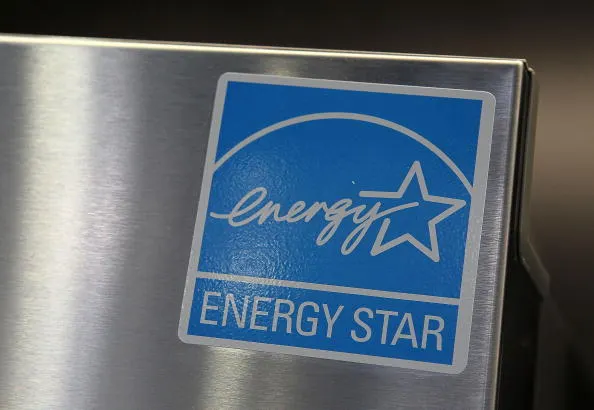Check Call: TIA’s annual fraud report spotlights surge in incidents
In this edition: Breaking down the TIA fraud report, and tariffs between the U.S. and China take a break. The post Check Call: TIA’s annual fraud report spotlights surge in incidents appeared first on FreightWaves.


The Transportation Intermediaries Association (TIA) has released its April 2025 “State of Fraud in the Industry” report, revealing a significant surge in freight fraud incidents that are impacting 3PLs and freight brokers nationwide. From Sept. 1, 2024, through Feb. 28, 2025, there were 1,611 fraud reports filed across seven key categories — an increase of 65% from the prior eight-month reporting period.
Key findings:
- Truckload freight as primary target: An overwhelming 97% of respondents identified truckload freight as the mode most susceptible to fraud.
- Prevalence of unlawful brokerage: Unlawful brokerage schemes, in which fraudsters impersonate legitimate brokers to misappropriate loads or payments, were cited by 34% of respondents as the most common fraud tactic encountered.
- Multiple fraud types experienced: Some 83% of respondents reported encountering at least three different types of fraud within the past six months.
- Widespread geographic impact: Fraud incidents have been reported across nearly every region, with Texas, California, South Carolina and Washington identified as top states where fraudulent activities originated.
- Financial strain on small businesses: About 22% of respondents reported losses exceeding $200,000 due to fraud in the past six months, while 10% have invested over $200,000 in fraud prevention measures.
Chris Burroughs, TIA president and CEO, emphasized the severity of the situation: “Our members are on the front lines of this crisis, and when fraud hits, they need to act fast.”
TIA has also released a Post-Fraud Incident Checklist. Burroughs said, “This checklist gives 3PLs and freight brokers a clear, tactical guide they can turn to in the heat of the moment — and we believe it’s going to make a real difference.”
The report highlights the evolution of fraud tactics, including:
- Identity theft and spoofing: Fraudsters are increasingly using identity theft and spoofing techniques, with 42% of respondents citing these as common fraud experiences.
- Compromised communications: There has been a steady increase in impersonation attempts, unauthorized contact changes and bad actors attempting to gain access to broker networks.
The report also delivers a strong message to policymakers: Now is the time for coordinated action. TIA is urging the Federal Motor Carrier Safety Administration to crack down on fraudulent carriers and remove illegitimate listings from its databases. The association is also calling on Congress to pass the Household Goods Shipping Consumer Protection Act and the Combating Organized Retail Crime Act, which would provide additional tools for law enforcement to investigate and prosecute this crime.
For a comprehensive understanding of the findings and recommendations, access the full TIA fraud report here.

Market Check. Dallas sees more than just the FreightWaves Freight Fraud Symposium this week, as outbound tender rejections have fallen 1.23% week over week. Rejections are sitting at 4.82% in this relatively stable freight market. Volatility comes when rejections are at or above 7% for many weeks, which was seen throughout April in Dallas.
With rejection rates lowering, brokers and shippers can expect stronger contract carrier compliance. Secondary carriers will see less award volumes and freight coming out of Dallas. Brokers can take their time when it comes to prioritizing coverage for lanes. Spot rates continue to leave a lot to be desired as rejections fall, meaning the rates from April will be on the high side when bidding for freight.

Who’s with whom. After months of escalating tensions and economic uncertainty, a welcome pause has arrived in the U.S.-China tariff standoff. The two global powers have agreed to a 90-day suspension of most tariffs that have been in place since April 2, offering a reprieve and an opportunity for further negotiations over the next three months.
As part of the agreement, both nations will begin rolling back many of the reciprocal tariffs that have defined the trade dispute. U.S. tariffs on Chinese goods will fall from 145% to 30%, and China’s tariffs on U.S. goods will fall back to 10%. These lower tariff rates are set to take effect Wednesday, signaling the first tangible sign of de-escalation in what has been a prolonged trade battle.
Beyond tariff reductions, the deal addresses key nontariff barriers. Beijing has committed to suspending or canceling several retaliatory measures, including export restrictions and the blacklisting of dozens of U.S. companies. This is seen as a significant move to rebuild trust and open dialogue between the two economies.
One of the most critical components of the new agreement centers on intellectual property rights. Article 1.1 of the agreement reaffirms both nations’ commitment to respecting IP rights, while Article 1.2 mandates the fair, adequate, and effective protection and enforcement of those rights. It also guarantees equitable market access to companies whose businesses depend on robust IP protections.
The agreement comes at a pivotal time. Just last month, concerns were raised as certain Chinese manufacturers began promoting luxury goods at significantly reduced prices, raising red flags about potential IP violations. This temporary trade truce may help curb those practices and ensure a more level playing field.
For U.S. retailers and importers facing an average transit time of about 20 days for goods traveling from Chinese ports to the U.S. West Coast, this window allows companies to pull forward inventory or restock products that may have run low during the high-tariff period.
The more you know
Highway releases Freight Fraud Index revealing 400,000 sophisticated fraud attempts in Q1 2025
CEVA Logistics acquires Turkish logistics company Borusan Tedarik
XPO sees minimal shipper conversion from LTL to TL
Taking on Porter, Uber launches logistics service Courier XL for delivery of large goods
Logistics firm buys $2M in Trump meme coins to boost US-Mexico trade
The post Check Call: TIA’s annual fraud report spotlights surge in incidents appeared first on FreightWaves.

















































































































































